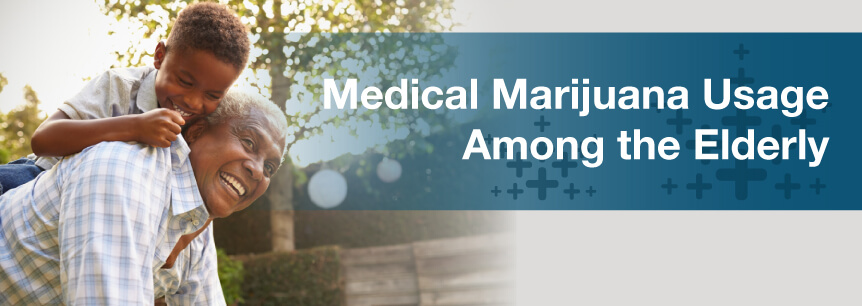
Seniors are the fastest growing demographic for medical cannabis, according to a recent University of Colorado study. But the trend isn’t as unusual as it might sound. Many people in this age group deal with issues such as joint inflammation, chronic pain, insomnia, muscle spasms, decreased appetite, among many other things. Now, instead of relying exclusively on prescription drugs, many seniors are seeking medical marijuana for the very same ailments. The growth is a testament to the shifting view of marijuana, which patients and physicians now recognize as a pain reliever for a range of condition like chronic pain, psoriasis, fibromyalgia and cancer.
As more seniors turn to medical cannabis, it’s vital to understand not only the benefits it can provide but also how to obtain it and properly use it.
Learn more below about medical marijuana use among seniors.
Cannabis use in U.S. adults over age 65 saw more than a tenfold increase from 2007 to 2017, with many of them seeking it for medical use. The most significant factor is that medical cannabis is now on their radar, as more states legalize both medical and recreational cannabis. With age, people are often vulnerable to more health risks, and an estimated 65 percent of Americans over the age of 65 suffer from some kind of pain. While research on medical cannabis is limited, many studies confirm its use as a pain reliever.
Here’s why some healthcare professionals are recommending medical marijuana to their senior patients:
Studies and research has shown that medical cannabis is capable of treating the following conditions, which are common among seniors:
Medical cannabis can treat these conditions by making symptoms less severe and less painful, but studies have not concluded that medical cannabis can cure any singular condition or disease.
For physicians as well as patients, medical marijuana does more than offer a safe treatment option for multiple conditions — it also leads to the following benefits. It can:

Like any other patient, senior use of medical marijuana can vary, depending on their condition and preferences. Administration options for medical cannabis include:
In most cases, a physician will recommend a treatment method that will deliver the best results with minimal side effects. If you cannot inhale smoke or apply topical creams due to lung or skin sensitivity, for instance, your medical marijuana doctor may suggest using edibles, as they can deliver the same relief. Approaches can change, however, depending on your experience with a medicating method. You may discover, for example, that your pain responds better to a topical cream, which provides localized relief.
As well as choosing an administration option, many senior patients will also need to select an appropriate strain for treating their symptoms. For elderly patients, a strain with a high concentration of CBD and a low percentage of tetrahydrocannabinol (THC) is ideal, as THC delivers a more psychoactive experience than CBD.
No Information on MarijuanaDoctors.Com should be used to diagnose, treat, prevent or cure any disease or condition. You can view our Full Disclaimer here.